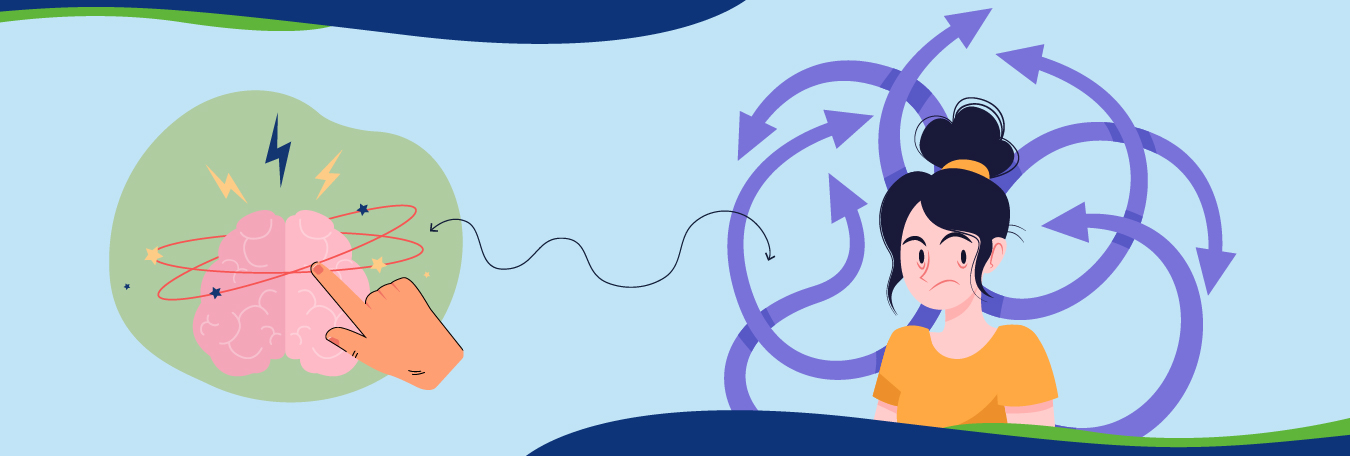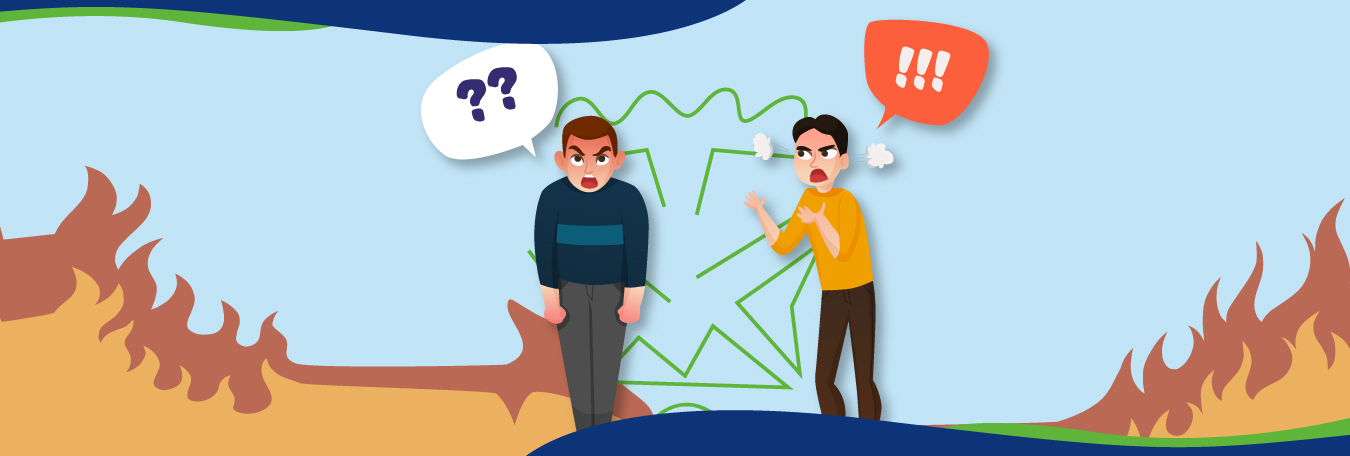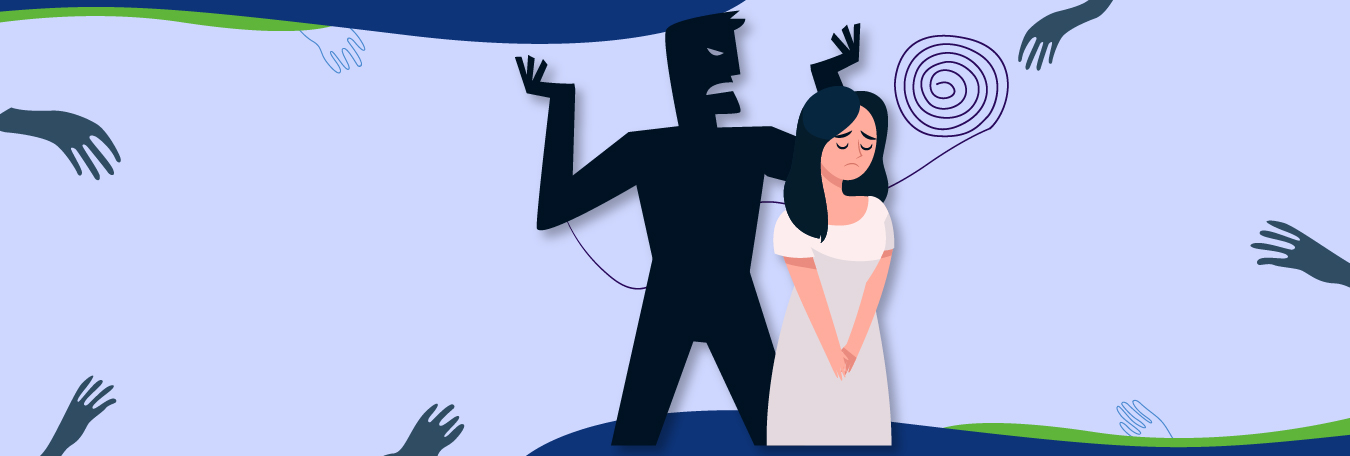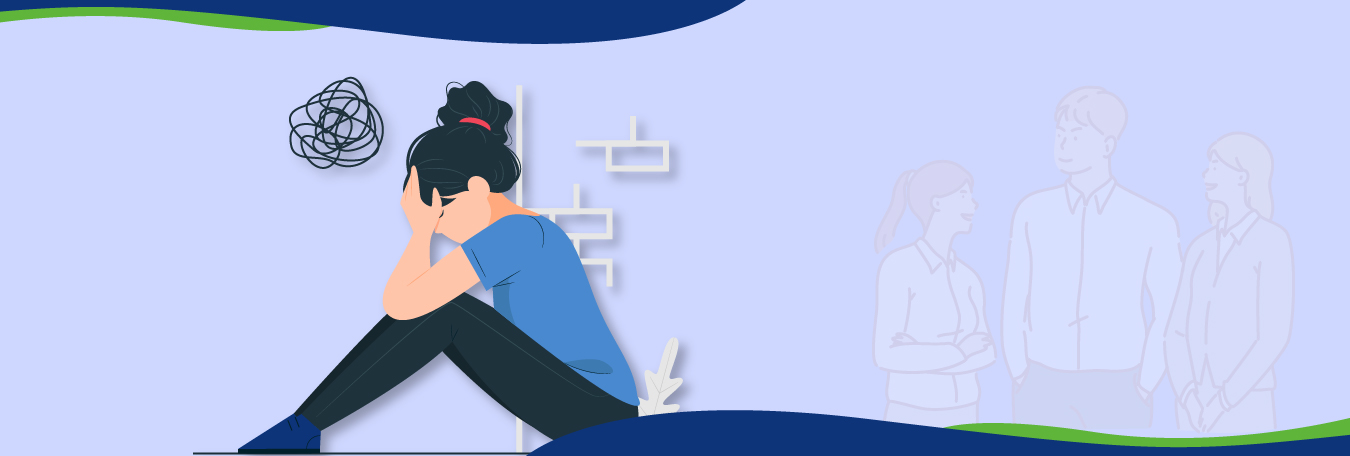What is OCD?
Obsessive-compulsive disorder is a mental health condition that is linked with a pattern of unwanted intrusive thoughts that can lead to certain repetitive behaviors to overcome distress.
Typically, the unwanted thoughts are called obsessions. Unwanted, repetitive behaviors or mental acts are called compulsions in OCD.
Many people experience unwanted thoughts. However, if a person is not diagnosed with OCD, then these unwanted thoughts will not be a cause of concern for them. The identifier of OCD is the development of obsessions and compulsions that can lead to negative effects on your child’s life. There is a significant connection between OCD and children. Some thoughts that can result from OCD in children are much more distressing that they can cause ache trouble sleeping at night.
What are some of the common symptoms of OCD in kids?
Identifying signs of OCD in children can be overwhelming for the parents. Here is a list of some of the common symptoms of OCD in kids:
Compulsions:
Children with OCD perform similar activities, such as frequently asking whether the door is shut, lining up objects in a special manner, insisting on performing many activities or wanting to do something a particular number of times, using specific words, or saying certain things repeatedly.
Obsessions:
Obsessions are worrisome, repetitive thoughts that come to your child’s mind repeatedly. A child with OCD does not want to think about such thoughts. But they feel they can not stop.
Parents may think these obsessions are their kid’s intense fears or worries regarding a particular object, place, or situation. Kids with OCD may feel unusually upset about
- Bacteria, viruses, illnesses, or injury
- Thoughts that someone will contract an illness, get hurt, or die
- Thoughts about something is odd or out of order
- Fear that evil thoughts will come true
Reassurance Seeking:
Another common sign of OCD in children is that they will constantly ask their parents or caregivers if everything is okay. In addition, if you have asked them to do something, they will repeat it to ensure nothing has been changed.
Avoidance:
Your child with OCD will avoid specific locations, individuals, or events that cause distress.
Perfectionism:
Kids with OCD will demand that things should be perfect or that activities be carried out in a certain way and become angry when they are not. They may also feel anxiety due to it.
Learn More: OCD in Women – Symptoms, Causes and Treatment
How is OCD diagnosed in a child?
A child psychiatrist assists you in identifying the signs of OCD in your child. The mental health expert will carry out the initial mental health assessment to diagnose obsessive-compulsive disorder in children. Your child must have both obsessions and compulsions that persist and are extreme and interfere with your child’s life to be diagnosed with OCD.
Many times, parents usually figure out on their own that a child is showing symptoms of OCD due to specific actions like washing hands or checking locks repeatedly.
What are the possible causes of OCD in kids?
Like any other mental disorder, Obsessive Compulsive Disorder does not have just one cause at all. The onset of OCD symptoms in kids could be due to several factors.
The below-stated list of risk factors for OCD is just a glimpse of what can be major causes of the onset of OCD in kids.
Family History and Genetics:
Research shows that genes play a significant role in the onset of OCD in kids. OCD is heritable. This simply means that it runs in the family. If one member of the family has it, then there are increased chances that the child may develop OCD. In addition, studies suggest that there are particular genes involved in the onset of obsessive-compulsive disorder in children.
Environmental factors:
When talking about the nature-nurture aspect, the environment can also play a significant role in the development of OCD. Many times, children watch their family members and learn the behaviors linked with OCD. This results in the development of OCD in kids.
Stressful events play an important role in triggering the onset of OCD in children. In addition, traumatic experiences like divorced parents, bullying, and academic pressure can severely affect a child’s mental health and can lead to OCD. In such a situation, a child will focus on getting rid of the anxious thoughts by developing certain compulsive behaviors.
Brain Chemical Imbalances:
Brain chemical imbalances play a pivotal role in triggering OCD symptoms in kids. The most important neurotransmitter involved in the onset of signs of OCD in children is serotonin, as it plays a crucial role in mood, behavior, and emotion regulation. If there is an imbalance in the levels of this neurotransmitter, it can lead to repetitive thoughts and compulsive behavior involved in OCD.
Learn More: Anxiety Symptoms in Women
What is the impact of OCD on the daily life of children?
OCD affects major areas of your child’s life, making it hard for them to figure out what’s happening to them.
Personal life issues:
OCD can impact your child’s family life most making it uncertain:
- Disturbances in family activities
- Sibling dissatisfaction
- Arguments with loved ones
A normal kid may find it difficult to understand why his friend acts a certain way. Therefore, OCD can negatively affect your child’s relationship with their peers. As a result, they can experience bullying and will prefer to stay isolated.
Academic issues:
OCD negatively impacts your child’s school life:
- Distraction and depression due to intrusive thoughts
- Wasting time due to their compulsions
- Strange behaviors (e.g., not using bathrooms due to obsessions regarding dirt)
- Missing out school
- Experience falling grades
How is OCD in kids treated?
The treatment plan for OCD in kids focuses on the nature of your child’s symptoms, his or her age, and general health condition. The primary focus will be on the severity of the disorder.
Treatment for OCD often includes a combination of the following:
Selective serotonin reuptake inhibitors (SSRIs):
These medicines assist in increasing the levels of serotonin in the brain, thus reducing the effects of OCD in kids.
Antidepressants:
The typical type of psychiatric medication used for treating signs of OCD in kids comes under the class of antidepressants famously known as selective serotonin reuptake inhibitors (SSRIs). These psychiatric medicines focus on balancing the disturbed levels of the brain chemical “serotonin” and bring out changes and improvements in mood and reduce anxiety.
Anti-anxiety medicines:
Your mental health provider may recommend your child an anti-anxiety medicine like alprazolam or clonazepam. This medication is best suited for severe signs of OCD in children that prevent them from attending school or disturb their daily routine.
Cognitive behavioral therapy:
Cognitive methods allow a child, with the help of the therapist, to define and recognize his or her fears. This will also help your child to learn coping techniques to overcome or minimize those fears. By using behavioral methods, the child and their family focus on rules to reduce or modify certain compulsive actions, such as setting a specific time limit to wash hands to avoid hand washing compulsion.
Family therapy:
Mental support from the family can do wonders for the mental health of children with OCD. Rigid behaviors by parents towards children with OCD can worsen the symptoms of OCD.
Conclusion!
OCD is a mental health condition that involves obsessions and compulsions. OCD in kids can be difficult to identify and manage. It can severely affect your child’s major areas of life, making it hard for them to function efficiently. There can be many causes of the development of OCD in kids, such as genetics, family history, environmental factors, and brain chemical imbalances. Treating the signs of OCD in children is crucial. This is why Inland Empire Behavioral Group offers the best and most effective treatment options for obsessive-compulsive disorder in children. This article covers all the important aspects of OCD in kids.




